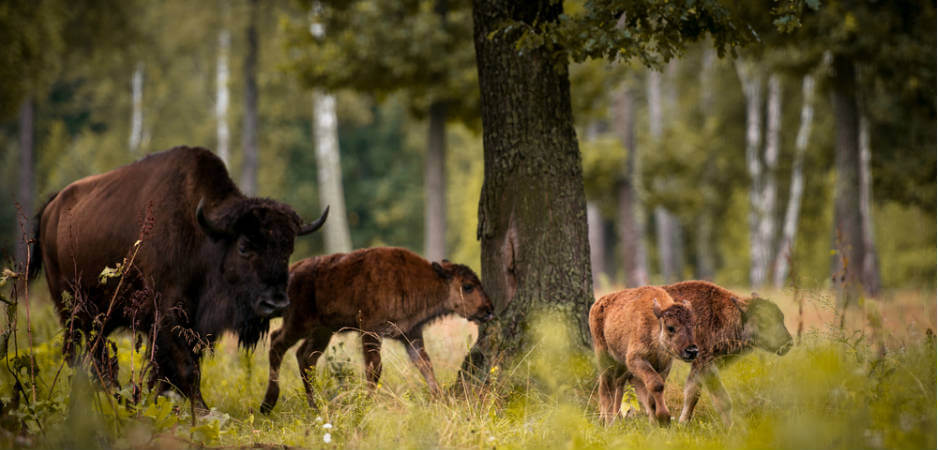One of Europe’s last primeval forests is on the brink of extinction, and Poland’s commercial logging could push it over the edge.
Long gone are the days when Europe was covered in virgin woodlands. Poland’s Bialowieza Forest, on the border with Belarus, is one of the last remaining vestiges of the continent’s primeval nature. A UNESCO Heritage Site, it now faces large-scale deforestation sanctioned by Poland’s nationalist government, in an act of unprecedented defiance of the European Court of Justice ruling. The government insists it is battling bark beetle infestation, citing public safety, but environmentalists argue this is a mere smokescreen for commercial logging.
Jan Szyszko, Poland’s environment minister, is the man responsible for sanctioning logging in Bialowieza in 2016. Szyszko drew widespread criticism in the past for allowing bison hunting — Bialowieza is home to Europe’s largest bison population. According to Deutsche Welle, when 500 pheasants under a protection scheme were released into the wild earlier this year, “Szyszko was there with his gun.” The 2017 “Szyszko law” now allows private landowners cut down trees without a permit. Upon its implementation in January, at least 1,350 trees disappeared in the first quarter of 2017 in Warsaw’s Wawer district alone.
In conservative rural communities, “It is not very popular to say that you are for the protection of the forest,” says Joanna Lapinska. She is a member of an anti-logging group that forms a small local resistance to the government’s scheme. The tensions over Bialowieza have become a question of power, politics and money, threatening an irreversible transformation of one of Europe’s oldest natural landmarks.
The views expressed in this article are the author’s own and do not necessarily reflect Fair Observer’s editorial policy.
Photo Credit: Evgeny Eremeev / Shutterstock.com
Support Fair Observer
We rely on your support for our independence, diversity and quality.
For more than 10 years, Fair Observer has been free, fair and independent. No billionaire owns us, no advertisers control us. We are a reader-supported nonprofit. Unlike many other publications, we keep our content free for readers regardless of where they live or whether they can afford to pay. We have no paywalls and no ads.
In the post-truth era of fake news, echo chambers and filter bubbles, we publish a plurality of perspectives from around the world. Anyone can publish with us, but everyone goes through a rigorous editorial process. So, you get fact-checked, well-reasoned content instead of noise.
We publish 2,500+ voices from 90+ countries. We also conduct education and training programs
on subjects ranging from digital media and journalism to writing and critical thinking. This
doesn’t come cheap. Servers, editors, trainers and web developers cost
money.
Please consider supporting us on a regular basis as a recurring donor or a
sustaining member.
Will you support FO’s journalism?
We rely on your support for our independence, diversity and quality.






